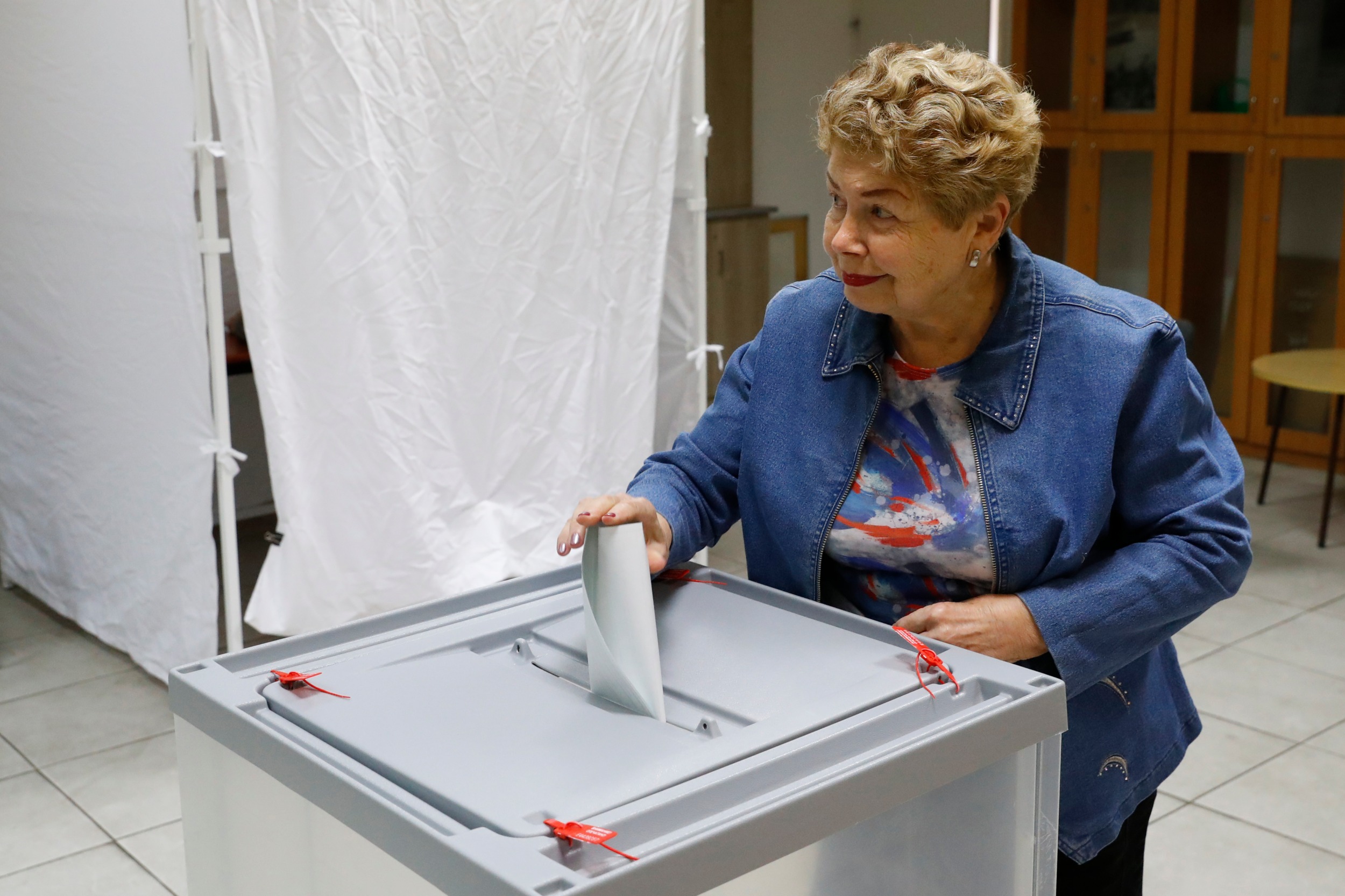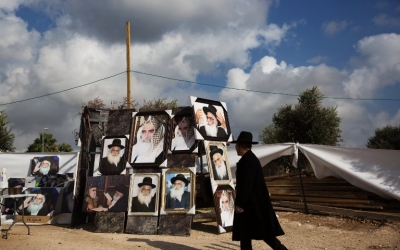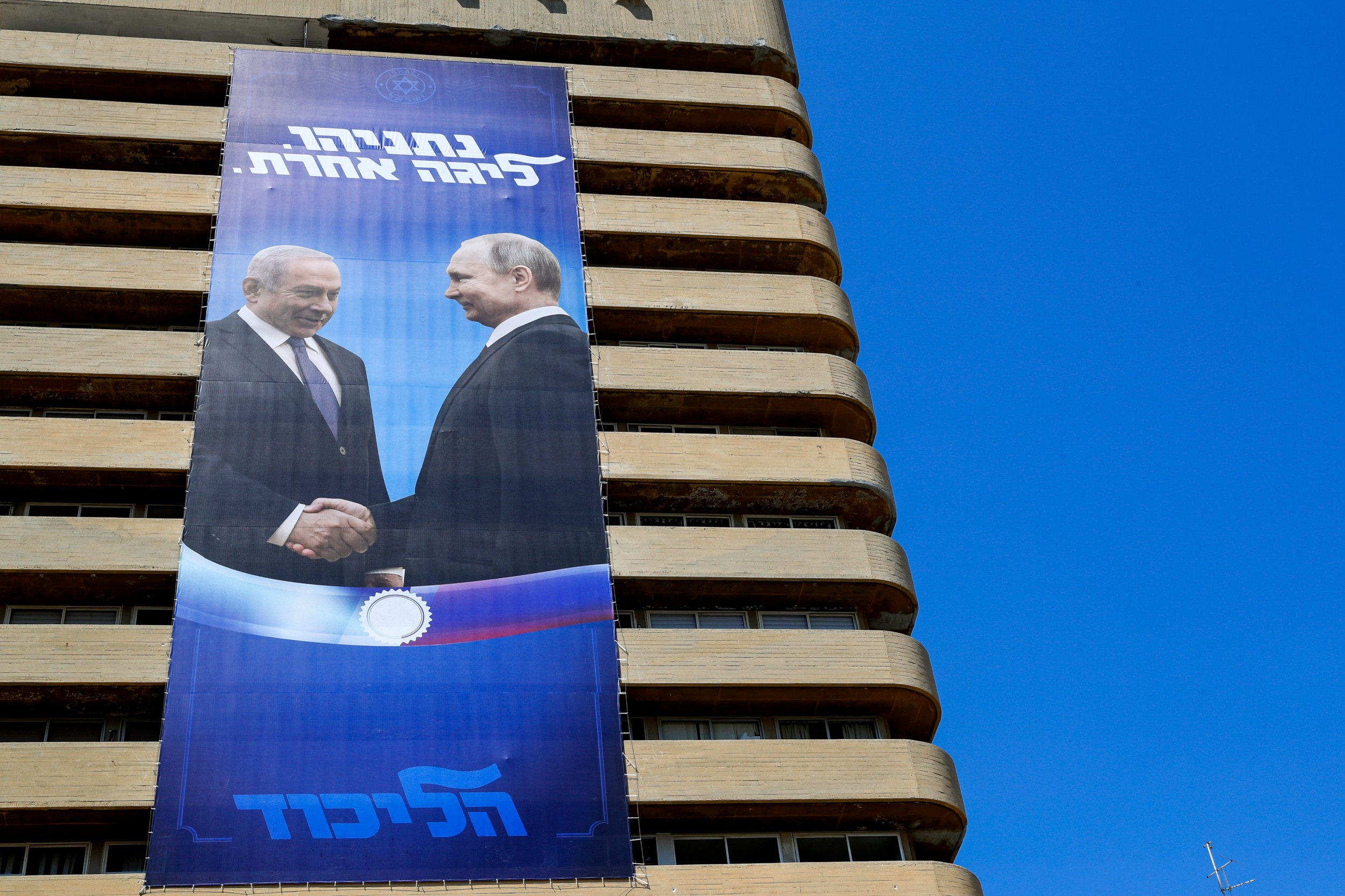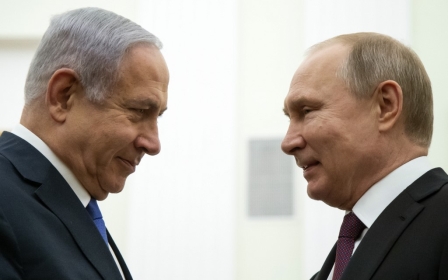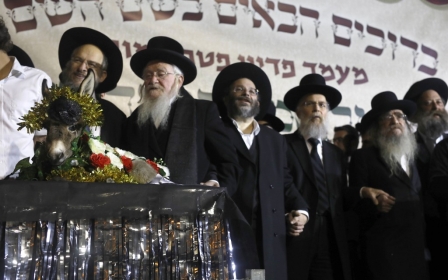Israel elections: Netanyahu, Lieberman fight for the 'Russian vote'

Soon after being forced to announce that another legislative election would take place on 17 September after he failed to secure a comfortable majority during an April vote, Israeli Prime Minister Benjamin Netanyahu made two statements.
First, he labelled Avigdor Lieberman, the Soviet-born head of right-wing secular nationalist party Yisrael Beiteinu, a "leftist". Second, he announced, in a threatening manner, that he would invest 50m shekels ($14m) in a campaign aimed at the Russian-Israeli vote.
The two statements complement each other.
Lieberman, himself a veteran immigrant from Moldova, is the head of what is still considered a sectarian "Russian" party in Israel. In April elections, this electorate only brought him five seats out of 120 in Israel’s parliament, the Knesset, but it is still perceived as his clan.
Netanyahu, arguably the best campaigner in Israeli politics, is treading into unknown territory going after the Russian vote on his own. He never really had to win them over as they have usually come to him out of an affinity for Lieberman.
For years, Lieberman operated as Netanyahu’s outsourcer for Russian votes. That was the nature of the tacit non-aggression pact between the two: you do not attack me, I bring my votes into your coalition pool.
But Lieberman’s refusal to join Netanyahu’s coalition in April and the prime minister’s subsequent attempt to encroach on Lieberman’s turf were nothing short of a declaration of war.
As the stand-off between Lieberman and Netanyahu intensifies in the lead-up to the election, Israel’s Russian-speaking community finds itself at the centre of this battle for influence.
The ‘Russian vote’
With almost one million immigrants from the former Soviet Union in Israel, amounting to a block of about 15-16 seats in parliament, the Russian community naturally finds itself in the middle of this power struggle.
They are largely considered right-wingers, yet also as a less committed swing vote. Over the 30 years since the first huge wave of migration from the collapsing Soviet Union, their vote brought late Prime Minister Yitzhak Rabin to power in 1992. Doing so, they allowed the Oslo Accords to be signed - only to fiercely oppose them just one year later.
In subsequent elections, they would majoritarily vote for Netanyahu in 1996; then Ehud Barak, head at the time of the Labor Party; then Ariel Sharon, the architect of disengagement from Gaza; and then for Netanyahu again.
Whoever they choose to go for, one thing seems clear: you cannot become Prime Minister in Israel without what is called “the Russian vote” in popular jargon.
Since he established his party in 1999, Lieberman has been juggling between his “base” as a sectarian party and the natural desire to become an all-Israeli party.
As party leader for over two decades, he has kept swinging between these two very different options.
Between the April election and September, he seemed to be quite successful in achieving both: so far, despite Netanyahu’s unprecedented investment in both money and energy, recent polls predict that Lieberman has managed to poach enough Russian voters from Netanyahu’s Likud party to gain two to three seats in the Knesset.
A complex history
For long-time observers, Netanyahu, like most Israeli politicians across the spectrum, seems to be oblivious to the sensitivity and mentality of this population.
When thousands of immigrants landed in Israel after the collapse of the Soviet Union in 1991, both the right and left wings of the Israeli political spectrum assumed their votes would belong to them.
The right based its assumption on the political leanings of a previous wave of mainly religious and ardently Zionist immigrants who came from the USSR in the 1970s.
Meanwhile, the left based its expectations on the socio-economic profile of the newcomers - Ashkenazi Jews with higher education who they instinctively included in their political circle.
But immigrants in the 1990s were different than previous waves. Most of them were neither religious nor particularly Zionists. For many of them, the United States, not Israel, was their first choice of destination. Mainly, they just wanted out after the collapse of the Soviet Union.
Israel had to work hard to put pressure on the US administration to “close the doors”, thus leaving few options for Russian Jews than to come to Israel.
This new generation had experienced an oppressive regime and the collapse of an empire, and came to Israel both ignorant and eager to make their own choices - and so they did.
Unlike other waves of immigration before them, these new Israelis came to lead, not just to integrate.
The impact of these one million immigrants on the political and social spheres in Israel has been huge, creating a big secular-nationalist camp rooted in Soviet political tradition.
One of the foundations of Soviet and post-Soviet political psychology has been described as the constant need to position oneself against an “enemy”. In Israel, the search was short: Palestinians on both sides of the Green Line were marked as arch-enemies.
Lieberman has fashioned his political career verbally attacking Palestinian citizens of Israel and their political representatives, often referring to them as a “fifth column” and saying they have no place in the Knesset.
Although not exclusive to Russian-speaking Israelis, the attitude that formed a basis of Lieberman’s electoral agenda has been quite popular among the community.
The rise of religious politics
But the coming round of elections is very different. While Palestinians remain the eternal enemy in the background, the growing influence of Orthodox and ultra-Orthodox Judaism and its representatives in Israeli politics has become a pivotal issue.
This serves Lieberman and his constituency well. While many Israelis feel threatened by the imposition of rabbinical law on secular citizens, the Russian-speaking community is more so than others.
Russian migrants to Israel have long been questioned about the validity of their Judaism - with many pressured to undergo humiliating Orthodox conversions or to take DNA tests to prove their Jewish ancestry. They also often cannot get married in their new motherland, where civil marriage is not officially recognised.
While most of them grew up or were born in Israel and served the mandatory military service, many sense that they are second-class citizens.
“Why do I have to be different? Why, after 15 years in Israel, do I have to go back to the Ukraine to perform a civil marriage ceremony since my homeland Israel wouldn’t allow me to get married in my own country?” 35-year-old Katya Volkov told Middle East Eye. Her personal story is the painful story of many of her generation.
These victims of the Orthodox system are now Lieberman’s big hope. His traditional electorate is old and ageing; changing the agenda to focus more on state and religion, he is attracting new crowds of younger Russian speakers who would not even consider voting for him under different circumstances.
This key issue has Lieberman thriving among Russians where Netanyahu fails - as the prime minister has defined the ultra-Orthodox as his “natural partners”.
At the entrance to a recent big political rally where Netanyahu was reaching out to the Russian-speaking community, Yisrael Beiteinu unveiled large posters showing a troika of Netanyahu and two ultra-Orthodox politicians with the inscription: “Netanyahu is good for the Orthodox”.
The insinuation was that of a more famous troika - Karl Marx, Friedrich Engels and Vladimir Lenin - certainly not heroes of Russian speakers.
But this has not stopped Netanyahu from trying. His campaigners have decorated the streets of Tel Aviv with posters of Netanyahu with world leaders, Russian President Vladimir Putin among them. “Another league”, read the inscription.
“It’s a lie," remarked David Aidelman, a political strategist of Russian origin, with some irony. “Netanyahu is still far from Putin’s level of corruption.”
Others thought it was a huge mistake. On 27 July, Moscow police brutally put down a large opposition demonstration. Russian newcomers to Israel, who fled the overturn of Russian democracy under Putin, were appalled.
“I ran away from Putin knowing where his Russia was heading,” Alla Borisova, a journalist who left Russia when Putin was re-elected president seven years ago, told MEE. “Netanyahu-Putin posters make me feel Putin is after me in Israel as well.”
Immigrants from the Ukraine, a majority among newcomers from the former Soviet Union, were also outraged and offended by Putin being used in Netanyahu’s campaign.
A one-on-one duel
While Netanyahu and Lieberman are the major players, others have tried reaching out to the Russian community.
Yair Lapid, head of the centrist Yesh Atid party - now part of the Blue And White alliance - has been using funny video segments to appeal to them.
But the left is nowhere to be seen. There have been no efforts to target the Russian community, who likes to be addressed directly. Some 30 years of neglect from the left cannot seemingly be rectified in the short time left until 17 September.
Meanwhile, neither Yesh Atid nor more left-leaning Israeli parties have any Russian-speaking candidates on their lists.
Up until now, Netanyahu’s fate has been in the hands of Lieberman for a very simple reason: the numbers do not add up.
Netanyahu cannot create a coalition without Lieberman. He needs 61 out of 120 seats in the Knesset to free himself from his one-time protege now turned rival.
So Lieberman, for the time being, remains the king maker.
This article is available in French on Middle East Eye French edition.
Middle East Eye propose une couverture et une analyse indépendantes et incomparables du Moyen-Orient, de l’Afrique du Nord et d’autres régions du monde. Pour en savoir plus sur la reprise de ce contenu et les frais qui s’appliquent, veuillez remplir ce formulaire [en anglais]. Pour en savoir plus sur MEE, cliquez ici [en anglais].


